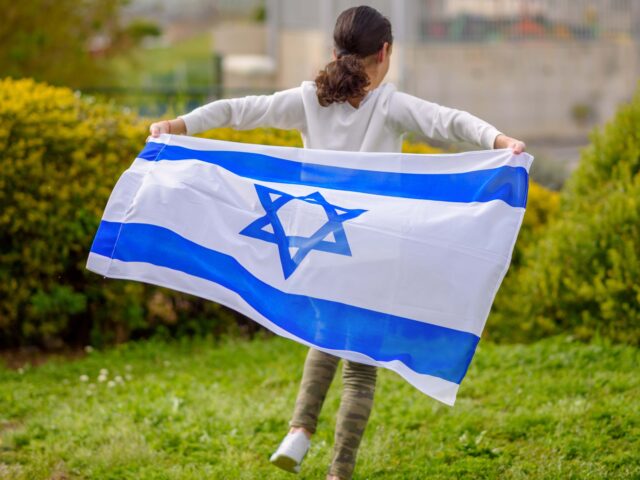Israeli President Isaac Herzog had a classic moment this week when a CNN anchor tried to accuse Israel of a “war crime” after it cut off electricity, fuel, and other services it had generously provided to the Hamas regime that murdered 1,300 people Saturday.
“With all due respect,” he said, “if you have a missile in your goddamned kitchen, and you want to shoot it at me, am I allowed to defend myself? Yes!”
He said Israel would “obey the rules of international law,” but that Israel would fight to protect “our homes.”
An out-of-context clip from that press conference is circulating among anti-Israel activists in which Herzog is shown rejecting the idea that the civilian population of Gaza was entirely innocent: they allowed Hamas to build “a machinery of evil” in their midst.
But later, Herzog also rejected the idea that civilians in Gaza were legitimate targets.
He added: “Humanity has to decide: are we accommodating terror, or are we fighting terror? We are fighting terror.” The cost of doing so, he said, was the “tragedy of terror.”
Only from a safe distance — or within the anti-Israel bubble of the mainstream media — can one pretend that Israel has any other choice. Either it kills Hamas terrorists, who hide behind Palestinian civilians, or else it allows Israeli civilians to be murdered.
Ideally, Palestinian civilians should be evacuated. But Egypt won’t let them cross, and Hamas won’t let them leave, in any case — not just because they are afraid of losing territory to Israel, but because human shields are essential to Hamas military strategy.
This time, Israel will not be deterred, even though roughly 100 of its own citizens are among the human shields, including babies held hostage by the terrorists.
Yes, there will be civilian casualties — and all of them, each and every one, will be Hamas’s fault.
Israel would be morally justified in setting aside some of the rules of engagement. The savagery of the Hamas attacks made clear that Israel is fighting for its survival — and the survival of the Jewish people, whom Hamas and Iran have threatened worldwide.
But it should obey the rules, for one simple reason: the peace that seemed so close, just a few weeks ago, is still a possibility. Israel must — and will — conduct this war in a way that protects the fragile relationships it had begun to establish in the Arab world.
I learned many things on my recent trip to Israel and the United Arab Emirates. I saw the strong cohesion of Israeli society — even with protests in the streets, and even before the terror attack compelled Israelis to set their political differences aside.
I also saw that Israel, and Jews, were being welcomed in parts of the Arab world — that there was no reason Israelis and Arabs, or Jews, Muslims, and Christians, could not live together in the Middle East, as long as they focused on building a better future.
I returned home believing peace was inevitable. That impression was reinforced by the warm overtures between the Saudi crown prince and the Israeli prime minister.
I believe that is why Hamas, backed by Iran, launched a war: they wanted to prevent peace.
But while Israel’s Arab partners have offered perfunctory support for the Palestinians, not one of the Abraham Accords nations has quit, as of now. A deal with the Saudis is on hold, not abandoned. And within Israel, the Arab population — 20% of the whole — has remained calm, or even openly pro-Israel.
There is overwhelming international support for Israel, for once — and the pro-Palestinian movement, holding angry rallies in cities and college campuses, has refused to condemn terror, alienating the public.
That movement, which refuses to do anything constructive for Palestinian national aspirations, only emerges to commemorate the so-called “Nakba” (“Catastrophe”) of Israel’s creation, and when Palestinian terrorists launch another war against Israel.
Israel’s victory is certain, as Herzog said, because it has no other choice. The terror attacks, which evoked memories of the Holocaust in their grotesque cruelty, made that clear. Yet peace is also inevitable — once Hamas, and its sponsors, are defeated.
Joel B. Pollak is Senior Editor-at-Large at Breitbart News and the host of Breitbart News Sunday on Sirius XM Patriot on Sunday evenings from 7 p.m. to 10 p.m. ET (4 p.m. to 7 p.m. PT). He is the author of the new biography, Rhoda: ‘Comrade Kadalie, You Are Out of Order’. He is also the author of the recent e-book, Neither Free nor Fair: The 2020 U.S. Presidential Election. He is a winner of the 2018 Robert Novak Journalism Alumni Fellowship. Follow him on Twitter at @joelpollak.

COMMENTS
Please let us know if you're having issues with commenting.